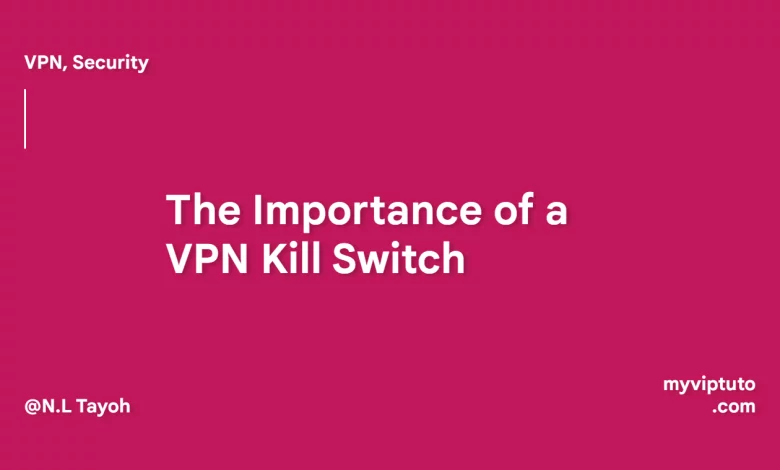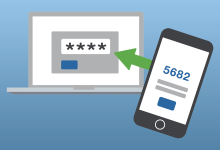
Nowadays where cyber threats are ever-present, ensuring your online privacy and security has become essential. One of the most effective tools for achieving this is a virtual private network (VPN). A VPN encrypts your internet connection, making it nearly impossible for anyone to intercept or access your data. However, what happens if your VPN connection unexpectedly drops? This is where a VPN kill switch comes into play.
What is a VPN Kill Switch?
A VPN kill switch is an advanced security feature designed to protect your digital data from accidental exposure. It acts as a failsafe mechanism that immediately cuts off your internet connection in the event of a VPN connection failure. By doing so, it prevents your IP address, online activity, and sensitive information from being exposed to prying eyes.
How Does a VPN Kill Switch Work?
To understand how a VPN kill switch works, it’s important to grasp the basics of how VPNs operate. When you connect to a VPN, it establishes a secure tunnel between your device and a remote server. This tunnel encrypts your internet traffic, ensuring that it remains private and secure.
A VPN kill switch constantly monitors your connection to the VPN server. If it detects any changes in the status of the VPN connection or your IP address, it triggers the kill switch mechanism. This mechanism then immediately cuts off your device’s internet access until the VPN connection is restored. This ensures that your online activity remains protected even if your VPN connection drops momentarily.
Types of VPN Kill Switches
There are two main types of VPN kill switches: system-level and application-level.
- System-Level Kill Switch: A system-level kill switch is a comprehensive solution that shuts down all network activity on your device if the VPN connection drops. This means that no internet traffic will be allowed until the VPN connection is reestablished. It provides maximum security but may disrupt other non-VPN-related applications and services.
- Application-Level Kill Switch: An application-level kill switch allows you to customize which specific applications or web applications should be blocked if the VPN connection fails. This gives you more control over which apps are affected and allows you to continue using non-sensitive applications even if the VPN connection drops.
The Importance of a VPN Kill Switch
Now that we understand what a VPN kill switch is and how it works, let’s explore why it’s crucial to have one in place.
1. Protecting Your Privacy and Security
The primary reason to use a VPN kill switch is to safeguard your privacy and security. When your VPN connection drops, your device may automatically revert to your regular internet connection provided by your Internet Service Provider (ISP). This exposes your IP address, location, and online activity to potential surveillance and tracking.
With a VPN kill switch enabled, your internet access is immediately cut off if the VPN connection fails, preventing any accidental exposure of your sensitive information. This ensures that your online privacy and security remain intact, even in the face of unexpected VPN connection drops.
2. Avoiding Data Leaks and Exposure
Imagine you’re working on sensitive or classified information for your job. If your VPN connection drops without a kill switch in place, your data could be vulnerable to interception and exposure. This could have serious consequences, ranging from corporate espionage to identity theft.
Promoted contents:
By using a VPN kill switch, you can prevent any potential data leaks or exposure. It acts as a fail-safe mechanism, ensuring that your sensitive information remains encrypted and inaccessible to unauthorized individuals.
3. Maintaining Anonymity and Bypassing Censorship
For individuals living in countries with strict internet censorship or surveillance, a VPN kill switch is essential. Activists, journalists, and bloggers working in such environments face significant risks to their privacy and freedom of speech. A VPN with a kill switch provides an additional layer of protection, allowing them to bypass censorship and maintain their anonymity.
When using a VPN kill switch, your online activity remains hidden from prying eyes, even if your VPN connection drops momentarily. This ensures that you can continue to access restricted content and communicate securely without fear of repercussions.
Common Causes of VPN Disconnections
While VPNs are generally reliable, there are several common causes of VPN disconnections that you should be aware of. Understanding these causes can help you troubleshoot and resolve any connection issues you may encounter.
- Unstable Internet Connection: Interruptions or instability in your internet connection can cause your VPN connection to drop. Weak Wi-Fi signals, constant switching between mobile data and Wi-Fi, or timeouts can all contribute to a loss of VPN connectivity.
- Software and Device Interference: Firewalls, antivirus software, or other security programs may interfere with your VPN connection. They might block the VPN app from establishing a secure tunnel, resulting in a disconnection. Adding your VPN to the firewall’s list of exceptions can resolve this issue.
- Network Congestion: Heavy internet traffic or network congestion can overload VPN servers, leading to connection drops. This is more common during peak usage hours or in regions with limited server capacity.
- ISP Interference: Some Internet Service Providers (ISPs) actively block or restrict VPN connections. If your VPN connection frequently drops, it’s possible that your ISP is interfering with the connection. In such cases, contacting your VPN provider or using alternative VPN protocols may help.
- Server and Networking Issues: VPN providers maintain numerous servers worldwide to handle user traffic. However, these servers are physical objects susceptible to occasional failures or maintenance issues. If your VPN provider experiences server-related problems, it can result in temporary disconnections.
- VPN Protocol Selection: The choice of VPN protocol can impact the stability and reliability of your connection. For example, the Transmission Control Protocol (TCP) is generally more reliable but slower than the User Datagram Protocol (UDP). Switching between protocols may help resolve connection issues.
How to Choose a VPN with a Kill Switch
When selecting a VPN provider, it’s essential to ensure that they offer a reliable and effective kill switch feature. Here are some factors to consider:
- Automatic Activation: Look for a VPN provider that offers automatic activation of the kill switch. This ensures that your privacy and security are protected from the moment you connect to their VPN servers. Manual activation may lead to accidental exposure if you forget to enable the kill switch.
- System-Level Kill Switch: A system-level kill switch provides a more comprehensive solution, cutting off all network activity when the VPN connection drops. This offers maximum security but may disrupt non-VPN-related applications and services.
- Application-Level Kill Switch: If you require more granular control over which applications are affected by the kill switch, opt for a VPN provider that offers an application-level kill switch. This allows you to customize which specific apps or web applications are blocked if the VPN connection fails.
- Reliability and Performance: Choose a VPN provider with a strong reputation for reliability and performance. Look for providers that offer a large server network, robust encryption protocols, and fast connection speeds. This ensures a seamless experience while maintaining your privacy and security.
- User-Friendly Interface: A user-friendly VPN client interface makes it easier to activate and manage the kill switch feature. Look for VPN providers that offer intuitive and well-designed applications across various devices and operating systems.
By considering these factors, you can choose a VPN provider that not only offers a kill switch but also meets your specific privacy, security, and usability requirements.
Conclusion
In an increasingly interconnected world, protecting your online privacy and security is of utmost importance. A VPN kill switch provides an essential layer of protection, ensuring that your data remains encrypted and your identity hidden, even in the event of a VPN connection failure.
By understanding how a VPN kill switch works, the various types available, and the common causes of VPN disconnections, you can make informed decisions to protect your online privacy. Choose a VPN provider that offers a reliable and effective kill switch, and enjoy the peace of mind that comes with knowing your online activities are secure.








